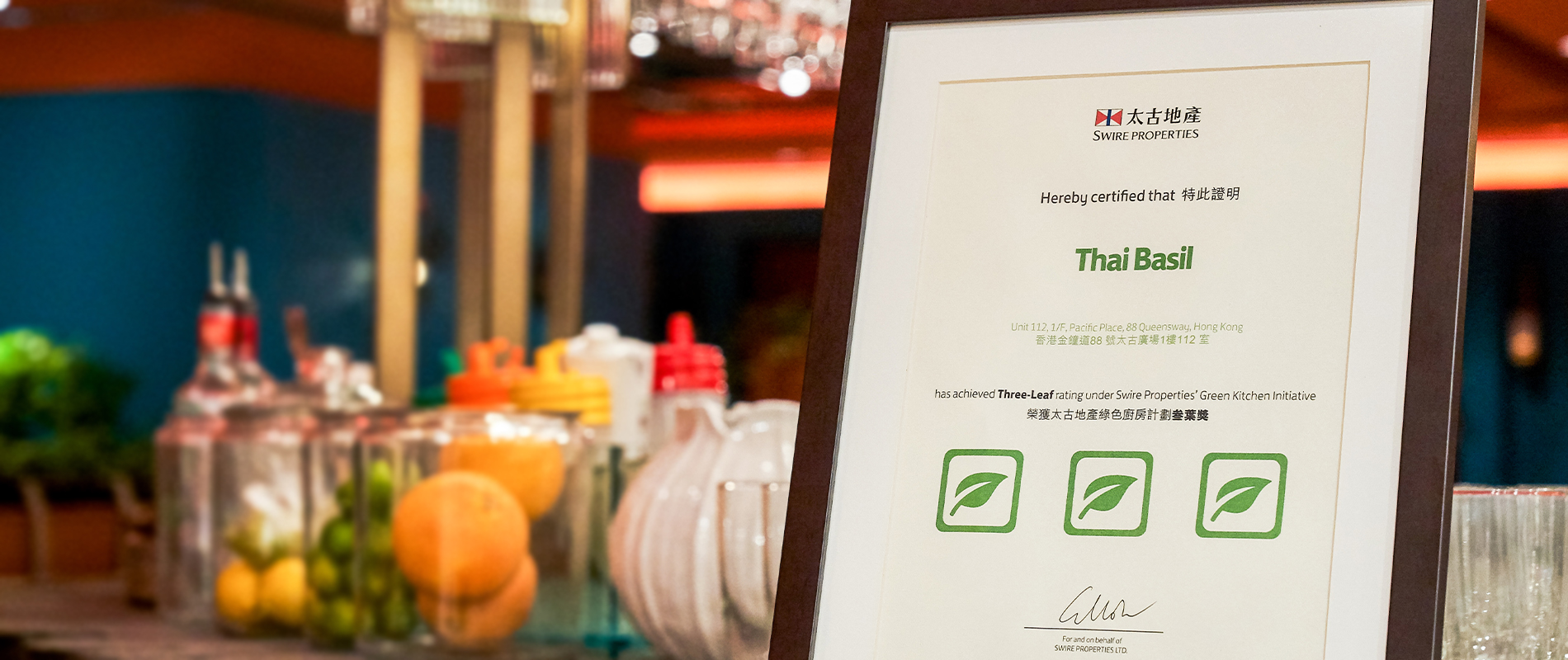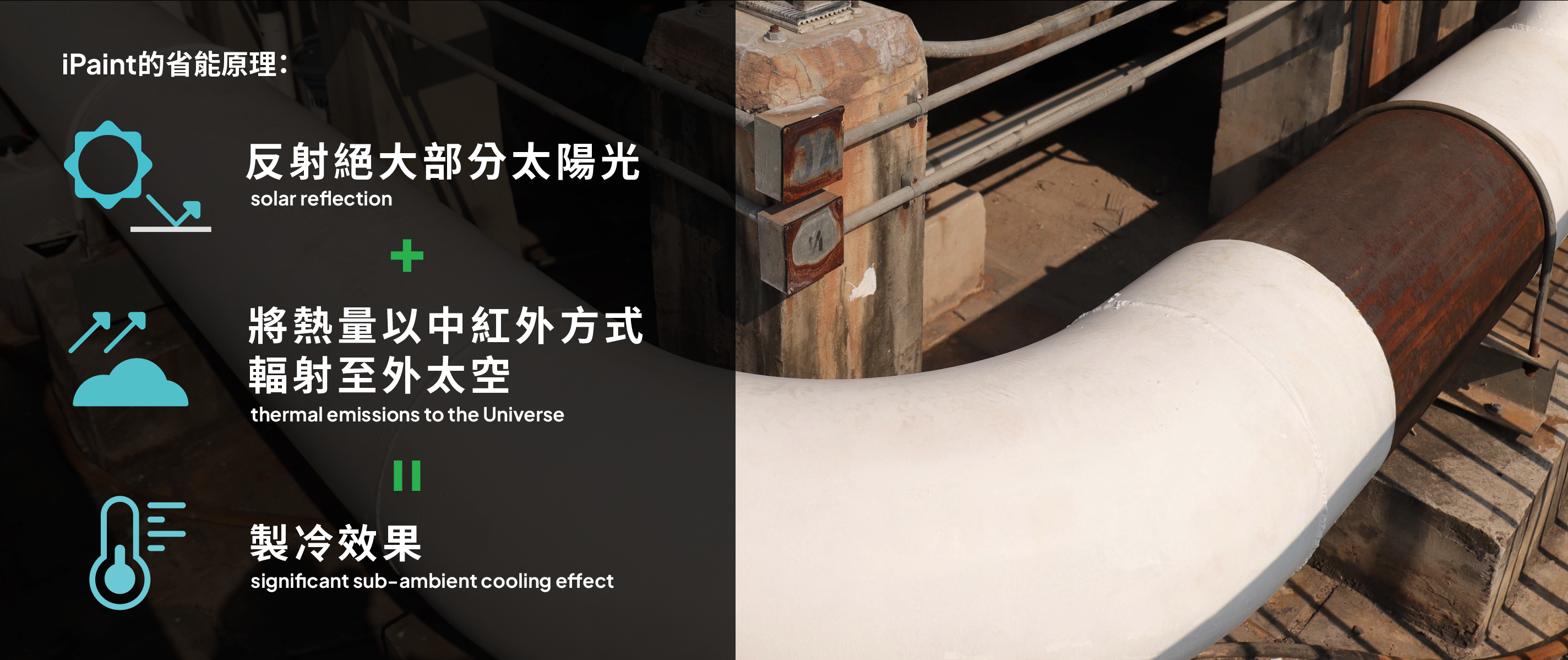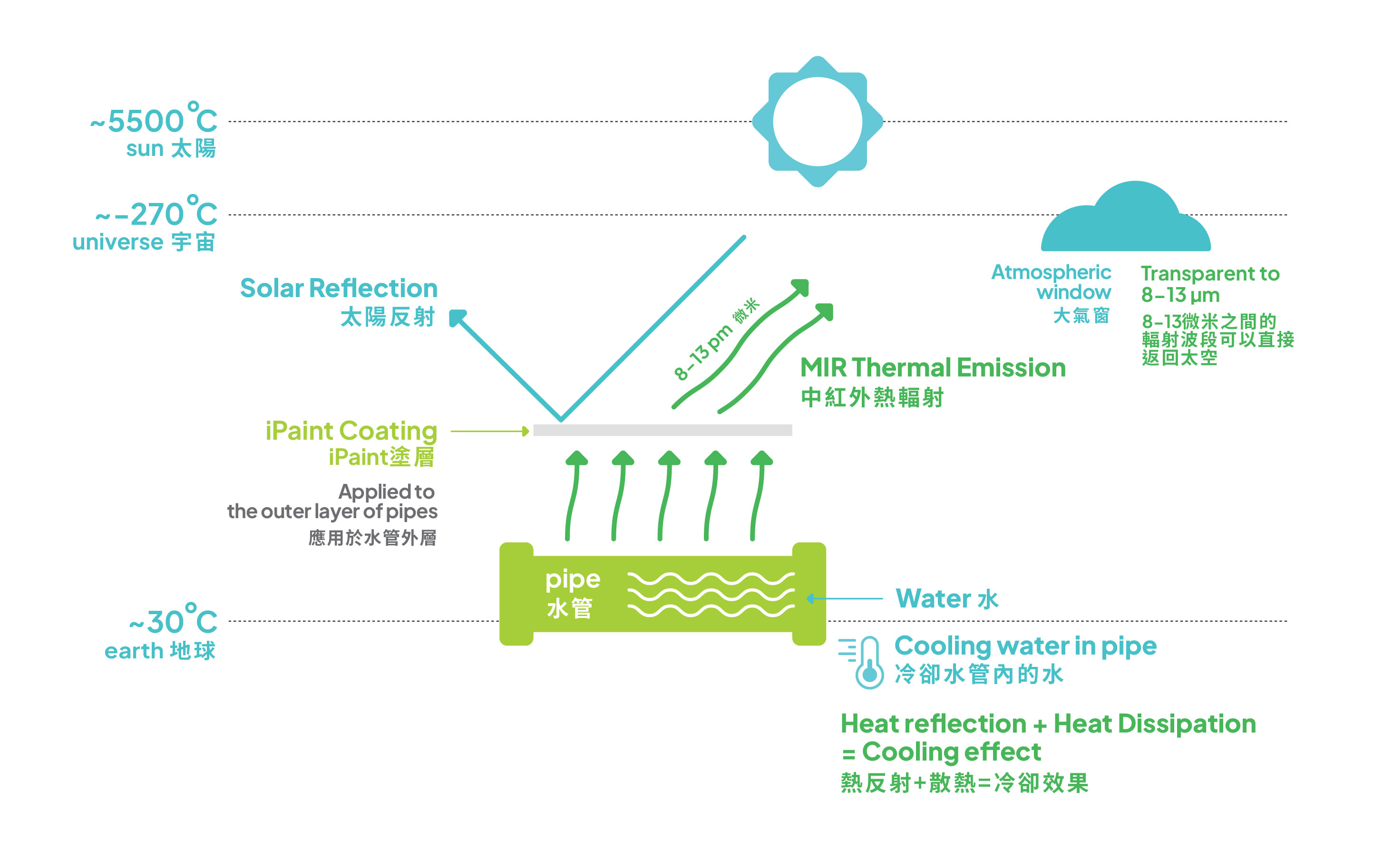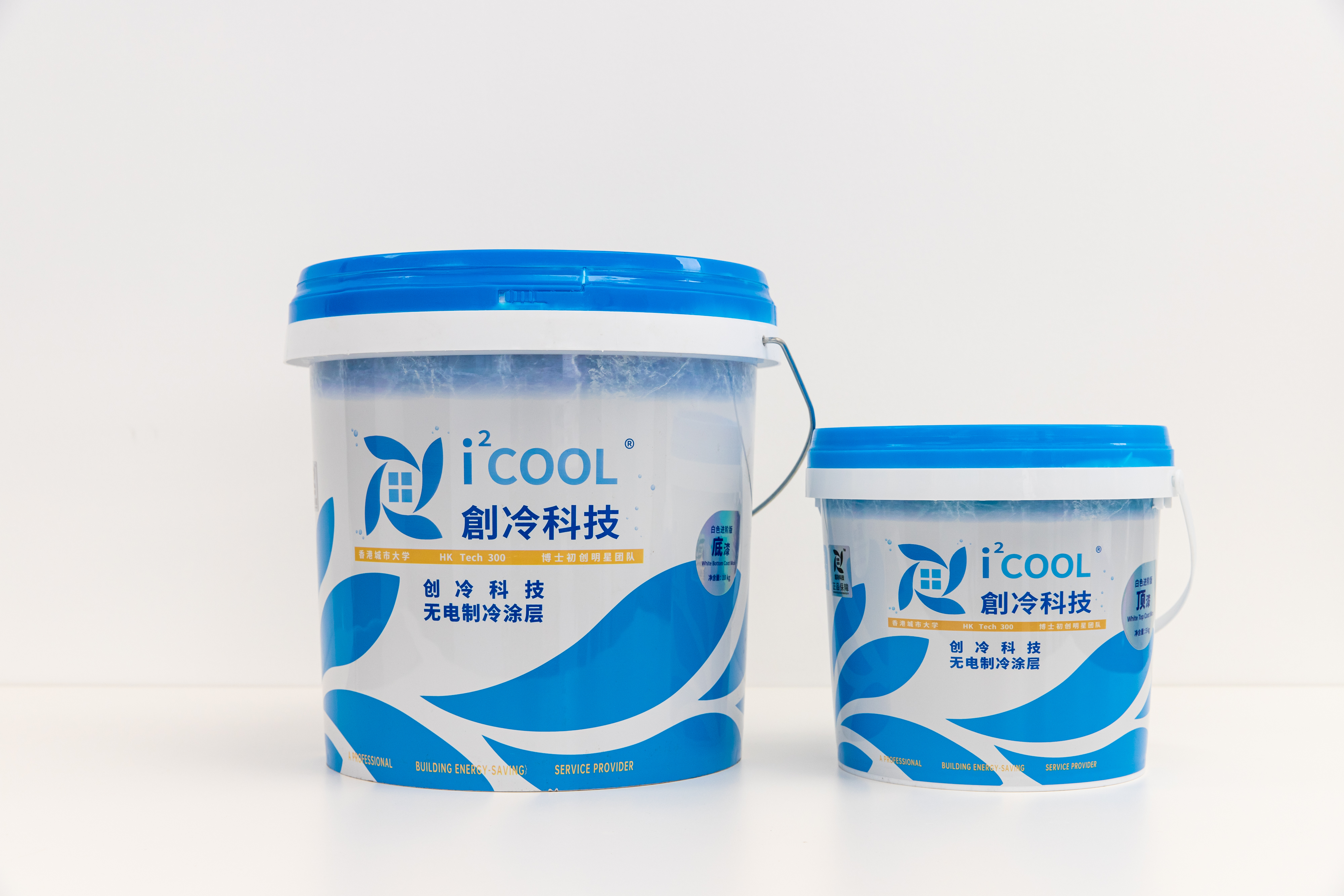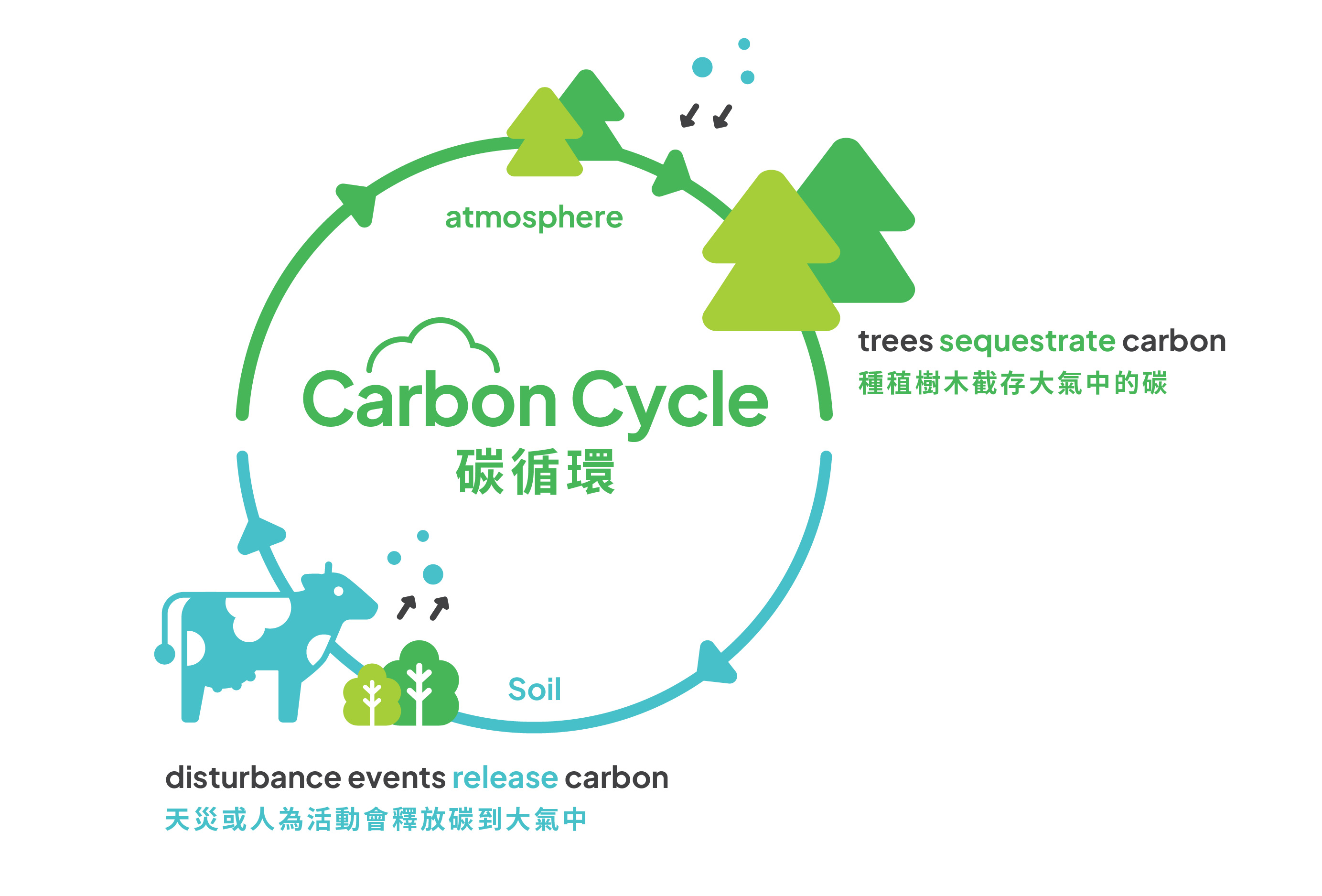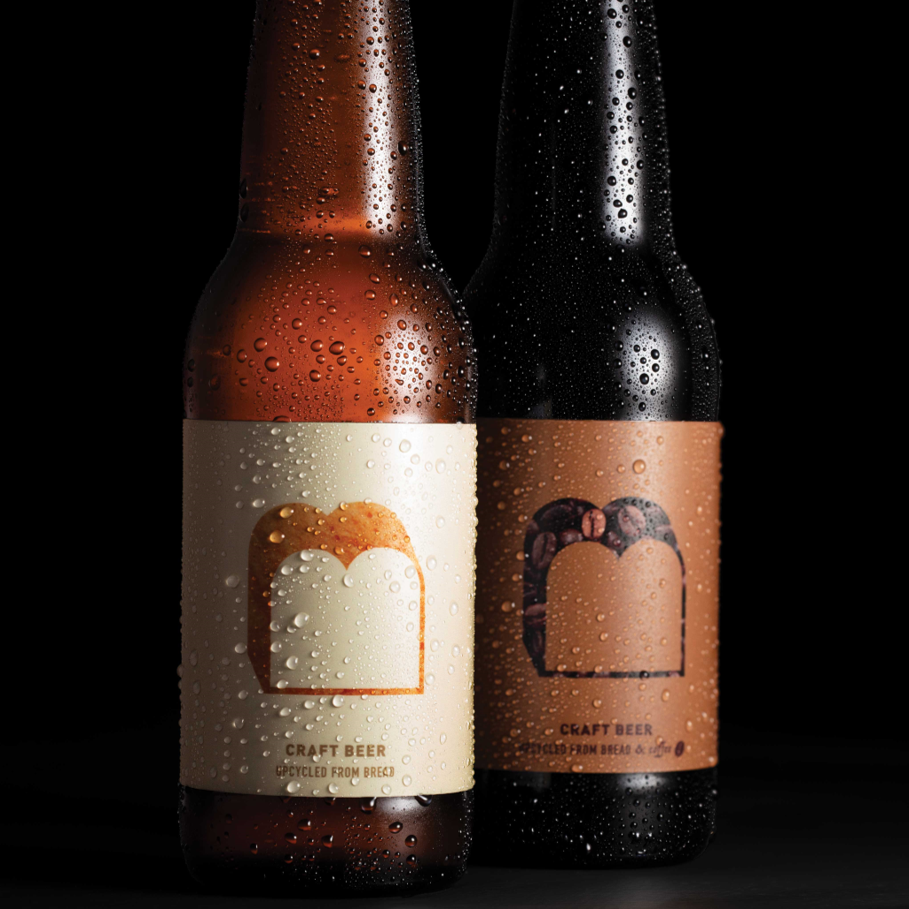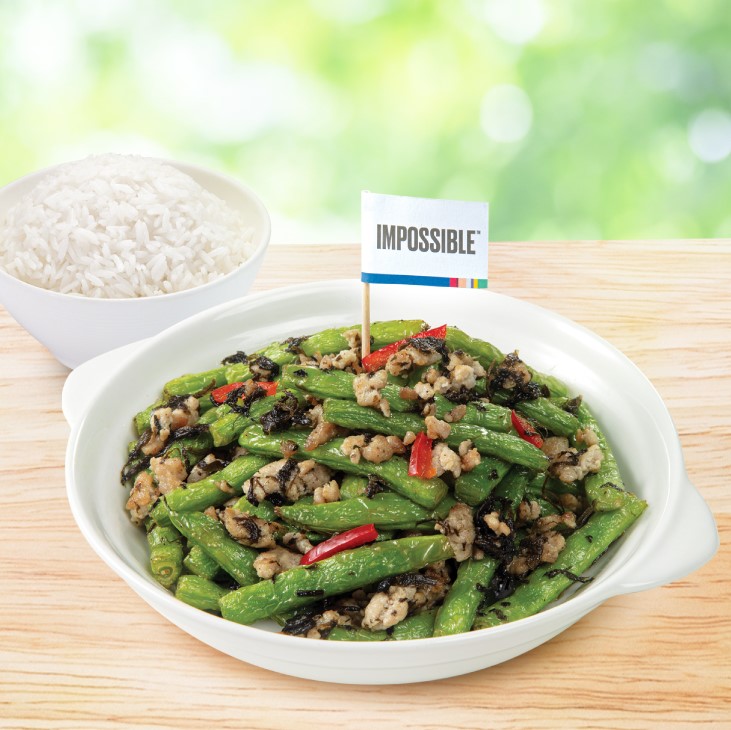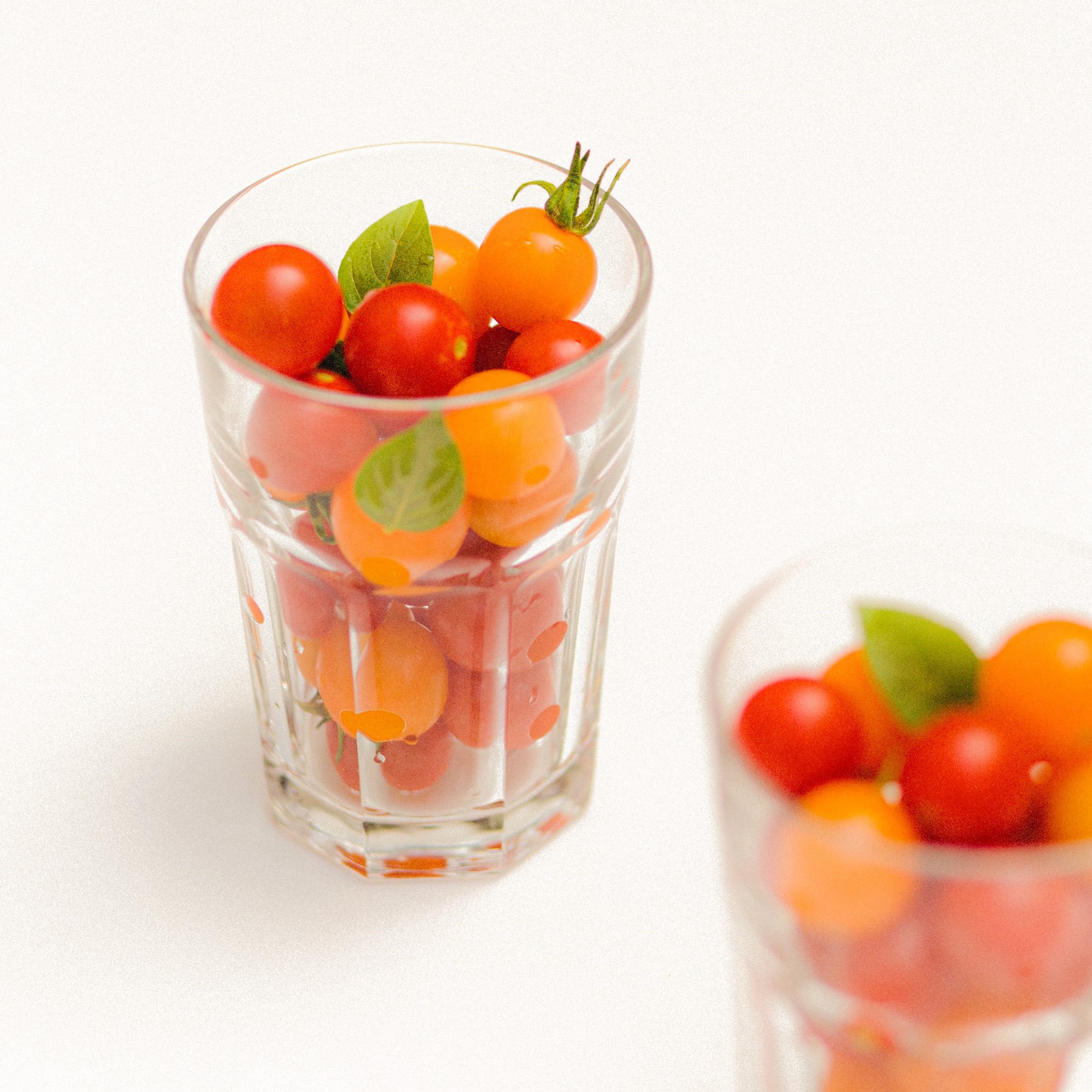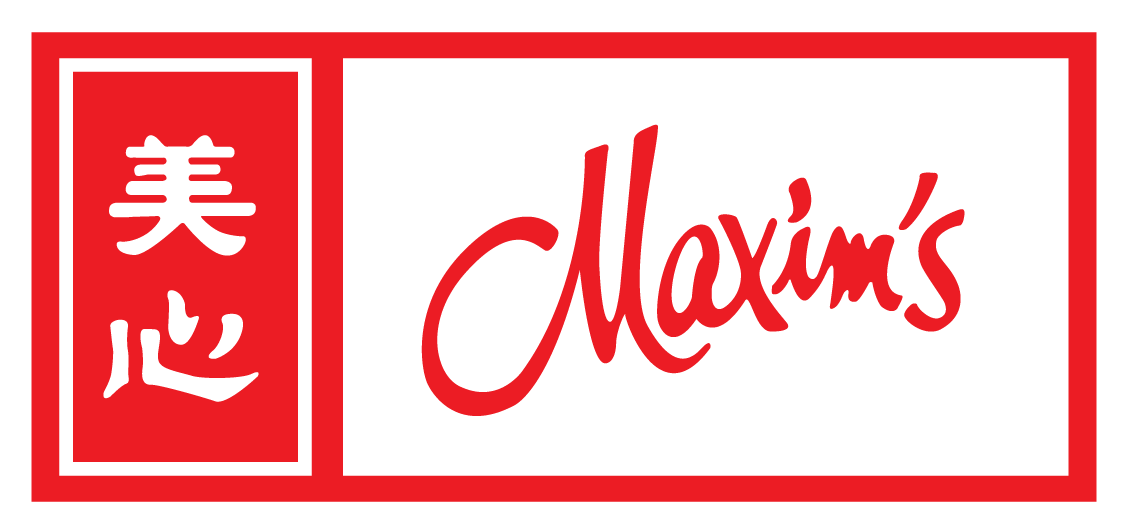The ultimate goal of any green operations is to achieve zero carbon emissions and zero waste by transforming waste into valuable resources.
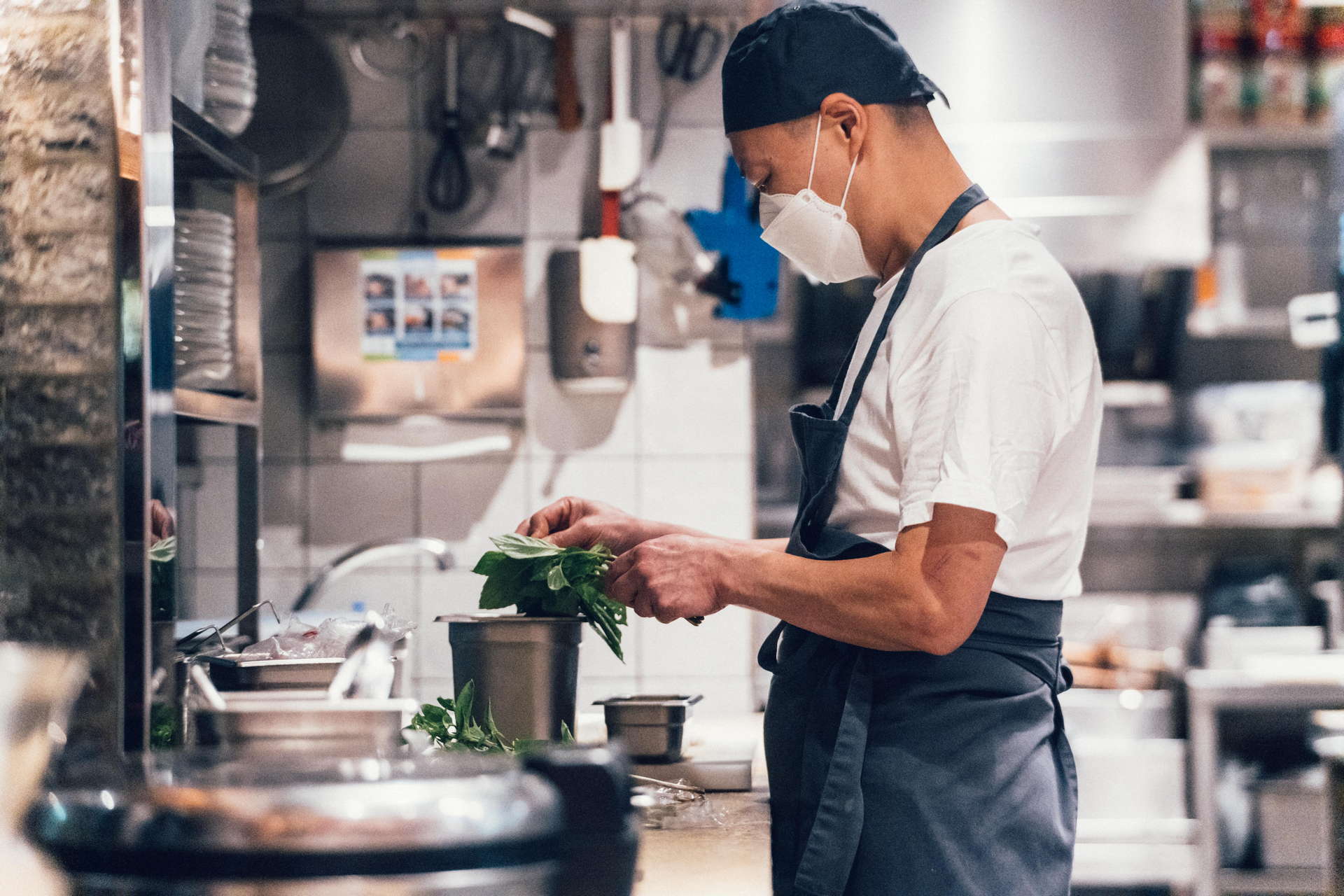
Maxim’s Thai Basil was the first restaurant tenant in shopping malls to receive top-rated Three-Leaf recognition in Hong Kong under the Green Kitchen Initiative established by Swire Properties in 2017. Maxim’s Group is Swire Properties’ most decorated F&B tenant group, with ten of its restaurants – including THAI BASIL, wellwellwell and Uoharu at Pacific Place, Shake Shack at Citygate Outlets in Hong Kong, and six others in the Chinese Mainland – having received the highest “Three Leaf” recognition.
The Green Kitchen Initiative encourages F&B tenants, when they start to plan for renovations, to engage in sustainable measures together with the operations and sustainability teams of Swire Properties, with the hope of achieving energy and water savings through green measures recommended in its professional guidelines, including sustainable goals like energy and water savings, improved air circulation and waste management.
“The communication and supervision started as early as the planning phase, as we met with tenants prior to their renovation, analyzing the overall design, daily operations and every single detail with recommendations. To us, every detail matters. The final One to Three-Leaf ratings are based on an on-site professional evaluation scoring of the environmental measures adopted by the related restaurant. The evaluation process continues after the restaurants open, following up on whether their food waste management and energy consumption comply with Green Kitchen initiative's professional guidelines. In short, there was no easy path for Maxim’s team to earn the highest rating,” said Phoebe Leung, Sustainable Development Manager of Swire Properties.
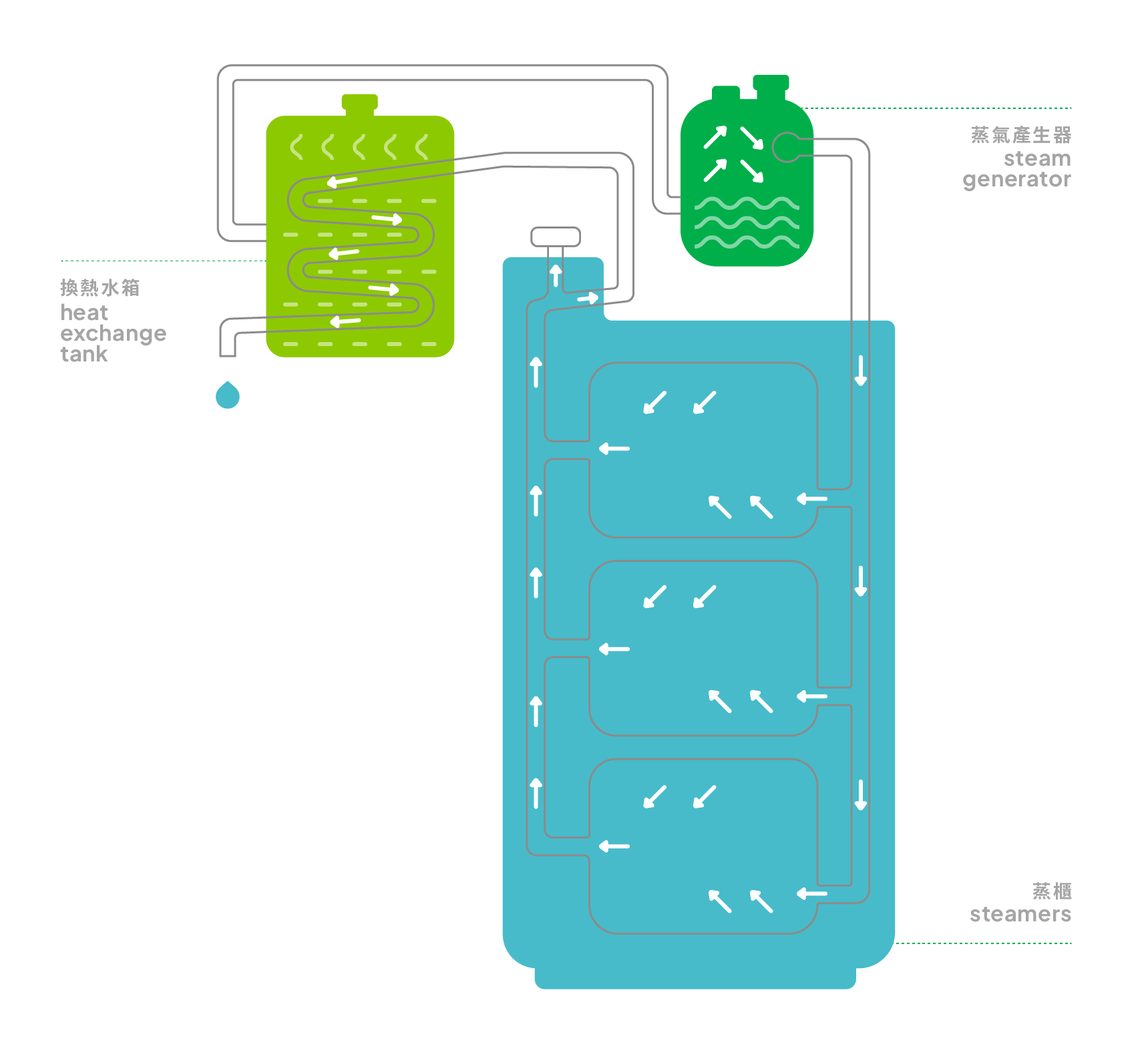
Alain Yu, Manager (Sustainability, Special Projects & Governance) at Maxim’s Group, said: “Take Thai Basil as an example: the kitchen extraction system is one of the restaurant’s most energy-consuming facilities. To avoid wastage, we used frequency conversion technology to slow down the extraction fan speed when the kitchen is less busy.” There is also a lot of thought on choosing the steam oven. “Steam generated from cooking is converted into reusable thermal energy through a heat recovery system. This allows us to use 25% less gas and reduce carbon emissions by 25% compared to traditional steam ovens. It also helps reduce kitchen temperature, creating a more pleasant working environment while further reducing energy consumption by the air-conditioning system.
“On top of that, our faucets are fitted with sprayers, creating miniature shower patterns which reduce water consumption by 30-40%.” Along with the use of induction cookers and LED lighting, no detail is too small for the Maxim’s team.
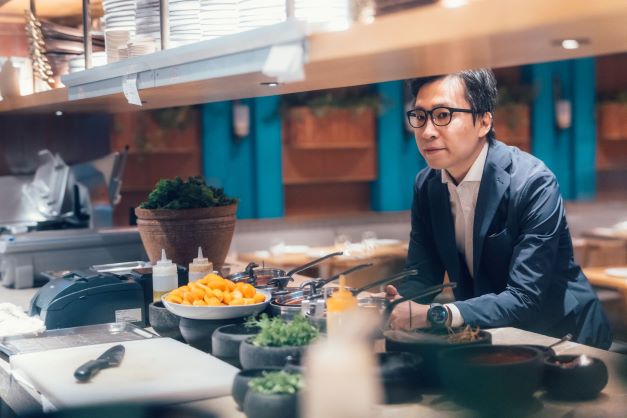
Alain also noted the importance of having a total understanding of every kitchen detail and procedure when devising a precise plan for cutting carbon emissions – right down to details such as peak times and months of air conditioning usage. That’s why the next steps include installing smart surveillance systems at various branches, and harnessing big data to target energy-saving strategies.
“Training frontline staff to correctly operate equipment is just as important, so that we can understand exactly how much water, electricity and gas are saved during operation, and ensure that the reduced carbon emissions is equal to the amount of carbon dioxide absorbed by trees. Remember – no gesture is too small to make a change.”
To date, 11 restaurants operated by Maxim’s Group have received Green Kitchen awards, being the top ranked F&B group with the highest number of awards across Swire Properties’ portfolios. 6 restaurants located in Mainland China and 4 restaurants located in Hong Kong have gained the top Three-Leaf recognition. Green operations are in every single detail and definitely can contribute to reducing carbon.
 Increasing electricity usage efficiency by 7%
Increasing electricity usage efficiency by 7%
 Increasing town gas usage efficiency by 26%
Increasing town gas usage efficiency by 26%
 Increasing water usage efficiency by 59%
Increasing water usage efficiency by 59%
 Reducing overall carbon emissions by 14%
Reducing overall carbon emissions by 14%
 Waste diversion rate over 37%
Waste diversion rate over 37%
We value saving energy as well as a safe and comfortable working environment – taking care of both the environment and our people. Reducing operational cost has indirectly benefited our revenue and brought job satisfaction to the frontline staff.
Candy Tse, Head of m.a.x. concepts, Maxim’s Group


